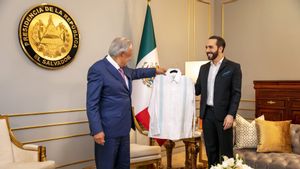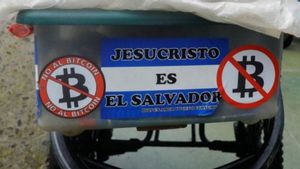JAKARTA - In an Independence Day livestream event on September 15, El Salvador's President Nayib Bukele announced his candidacy for re-election after his current term ends in 2024.
Bukele's announcement comes despite El Salvador's previous president being barred by law from having consecutive terms.
"Developed countries had re-election, and thanks to the new configuration of our country's democratic institutions, now El Salvador will too," he said.
If you’re being misinformed by the mainstream media and some “journalists” about what’s happening in El Salvador, you should watch yesterday’s FULL MESSAGE and why I chose our INDEPENDENCE DAY to announce an expected candidacy for re-election. https://t.co/FKue3NypO6
— Nayib Bukele (@nayibbukele) September 17, 2022
Overall, Bukele is showing signs of solid support, as Gallup's CID poll conducted last month revealed an approval rating of 85% for his presidency and 95% approval for his administration on security matters.
However, in connection with the announcement, El Salvadorans took to the streets in protest. Thousands of protesters opposed Bukele's corruption and Bitcoin integration, among other things that were deemed distasteful during his presidency.
During his presidency, Bukele introduced Bitcoin as a legal tender in the country in September 2021. The introduction of the country's largest cryptocurrency recently reached its one-year anniversary, after a year of steady price declines.
Despite introducing Bitcoin-centric educational programs such as “Mi Primera Bitcoin” (my first bitcoin) and setting an example for neighboring countries like Columbia and Venezuela, locals are not as interested in crypto as one might expect.
SEE ALSO:
A national survey from February this year showed that 20% of the population is actively using the Chivo Wallet, El Salvador's crypto wallet of choice, for Bitcoin transitions. Otherwise, more than double the amount downloaded for the initial free gift of $30.
Only 20% of business owners surveyed said they accept payments in cryptocurrencies. Most of the businesses that do so are large corporations rather than small-scale shops.
On the other hand, the adoption of Bitcoin as a legal tender has introduced a new type of crypto-tourist to the country, despite the sluggish market. According to official figures, local tourism is up 82.8% just this year.
Critics keep going back and forth on the topic of Bitcoin use and adoption in El Salvador. Thousands may protest on the street against policies surrounding digital currencies. However, some still see it as technological and financial advancement for a developing country like El Salvador.
The English, Chinese, Japanese, Arabic, and French versions are automatically generated by the AI. So there may still be inaccuracies in translating, please always see Indonesian as our main language. (system supported by DigitalSiber.id)














